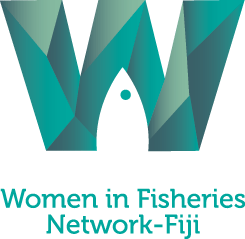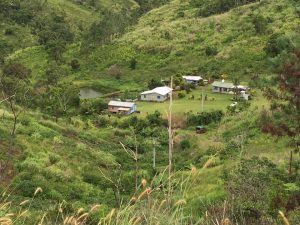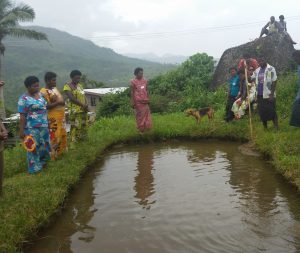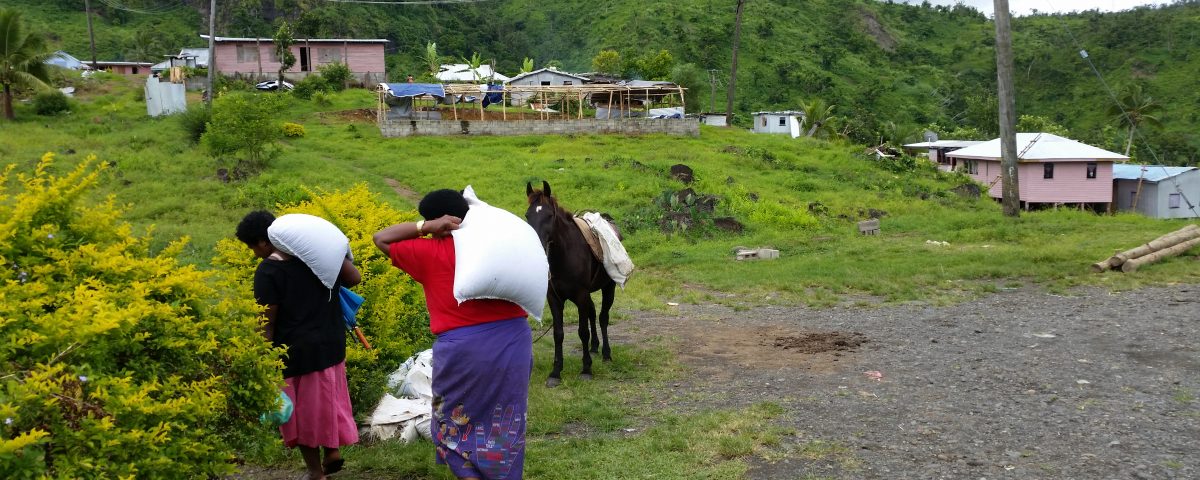
Women in Fisheries Network – Fiji (WiFN-Fiji) is currently working with the Secretariat of the South Pacific (SPC) and Fiji Ministry of Fisheries on a project to ascertain the impacts that community aquaculture can have on household income, nutrition , and the status of women and children in Fiji.
The objectives are:
- To assess the division of labour and roles of women and men play in the farming system, with a specific emphasis of aquaculture activities
- To identify gender issues that may affect equitable benefits from aquaculture activities for women and for men
- To identify entry points for supporting equitable access to natural, economic and social resources and equitable outcomes from aquaculture development for women and for men
- To make recommendations for effective implementation of gender mainstreaming approach in across aquaculture program
One area studied concerned the women of Rewasau Villageilapia and their tilapia fish farming project.
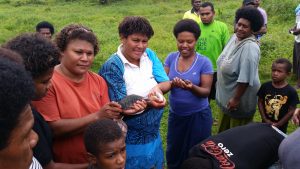
Tilapia fish reared in Rewasau ponds are here being posed for the camera
Tilaia Fish Farming project described by Joanne Kunatuba (Gender Equity SPC) and Timothy Pickering (SPC Inland Aquaculture Advisor and WiFN-Fiji Board member)
For women in Rewasau Village in the highlands of Monasavu, life is busy and it’s tough. Their days are constantly filled with patient negotiation, learning and lots of hard work. Rewasau is in the interior of Viti Levu in Fiji Islands. The village itself is quite inaccessible as the roads are steep and buses are unable to stop at the village itself. Like many other villages across Fiji, the people of Rewasau are resilient. They work hard and despite accessibility issues, are able to get their produce to Tavua market to sell.
In 2014, when the Fiji Ministry of Fisheries staff at Naduruloulou Research Station NRS started conducting fish farming workshops in Naitasiri to introduce villagers to farming of tilapia fish, a group of women in Rewasau saw this as an opportunity to earn a supplementary income for their families. However, as their first crop of tilapia was harvested, they realized this new found investment could be used as a source of payment for services, because fish is a much sought after source of protein for people in the highlands. “When I did my first harvest, the youth in the village helped to dig another pond and I gave them fish to eat as payment,” said Mere Sinu Kula, a farmer in Rewasau.
Many of the tilapia farmers engage in this activity together with their husbands. They admit that although decisions regarding the tilapia farm are made jointly, many of the big decisions have been made by the women as a group. “When we did the first harvest most of our fish was shared. We gave it as our tithe to the church and we shared it with other families. We said we would use the second harvest to sell, but when it was time to harvest again, Tropical Cyclone Winston hit our area, so we used most of our fish as payment for rebuilding our homes. All the women agreed that we would feed the youth as payment for building our church and our village hall. So we used our tilapia for that,” said Sylvia Nabola, one of several tilapia farmers in the village.
Even though Rewasau is at the foot of the largest dam in Fiji, water is still a problem for half of the village of Rewasau. Piped water is only available for one part of the village and many of the tilapia farms are on the other side of the village. The farmers have used traditional knowledge of water resources by building bamboo water pipes and identifying natural springs in the ground to fill their ponds. “These women know where the natural springs are and how to use their resources and where to place their ponds, but the problem is, they have a lot of livestock around the village. Many times the livestock damage the bamboo pipes so they always have to repair it,” highlighted Farm Development Officer at NRS, Ms. Makalesi Rauto.
Most of the fish ponds have been constructed close to village homes, which makes daily care more easy
The women highlighted that accessing resources in the village was not a problem – whether it was water, land, livestock or the only 4 vehicles in the village. They acknowledged that control of these resources was not theirs, nor even their spouses. Water and land is controlled by the mataqali so all decisions are made communally. However, for the livestock the women said decision on when to sell or eat their livestock was usually made with their spouses or other family members.
The four vehicles belong to other members of the village. The women say that every day a vehicle goes to Tavua town or makes a drop-off to the nearest bus stop. Accessing this transport often involves planning – who needs to go where and what time and who has money to contribute to the fuel. According to the women, they are good at coordinating this, as they often speak to each other and therefore know the needs of other families in the village – whether it is fish feed, or to sell yaqona or take someone to the health centre.
None of the women of Rewasau village know how to drive. When asked if they would like to learn, they smiled shyly and then excitedly. “The men will just say, what’s our business in learning to drive, how can we drive the trucks,” said one of the women. “ Maybe one day,” they all agreed.
These are experiences about tilapia farming related by women of Rewasau Village during one of several Gender in Aquaculture case study visits currently being conducted in Fiji. This is being done jointly by the gender team within SPC’s Social Development Program SDP, the Aquaculture Section of the Fisheries Aquaculture and Marine Ecosystems FAME Division, the Fiji Ministry of Fisheries, and the Women in Fisheries Network – Fiji WiFN-Fiji. Rewasau was one of several tilapia farm sites visited in December 2016 in efforts to understand gender issues in aquaculture in Fiji.
Pacific island aquaculture is for the first time being formally assessed from a gender perspective, as part of work for the Community Aquaculture project administered by SPC with support from the Australian Center for International Agricultural Research ACIAR. One of this project’s goals is to ascertain the impacts that community aquaculture can have on household income, nutrition, and the status of women and children in Fiji, Samoa, Vanuatu and Kiribati. These results can be used to verify the ways that benefits flow to households and communities from small-scale fish farming, and identify possible entry points, policies or activities to further strengthen and improve this food production sector in the Pacific.
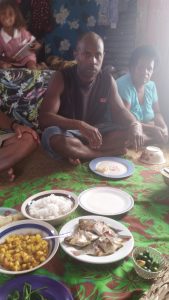
For futher information please contact: Joanne Kunatuba (Human Development Officer – Gender Equality) on email: joannek@spc.int, or Tim Pickering (Inland Aquaculture Advisor) on email: TimP@spc.int
Fresh tilapia fish are a welcome addition to the mainly vegetable diet of people living in the mountainous interior of Fiji.
